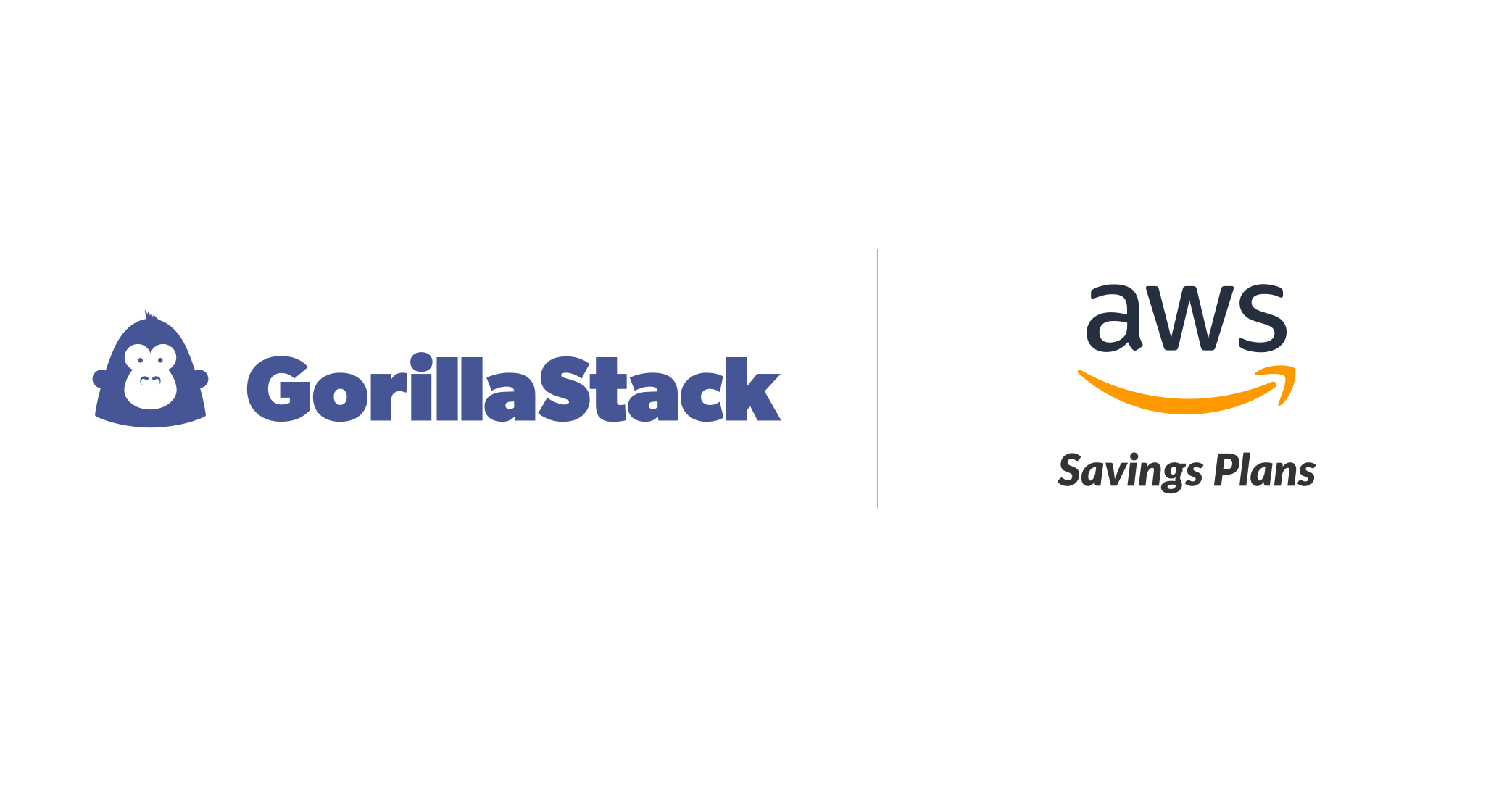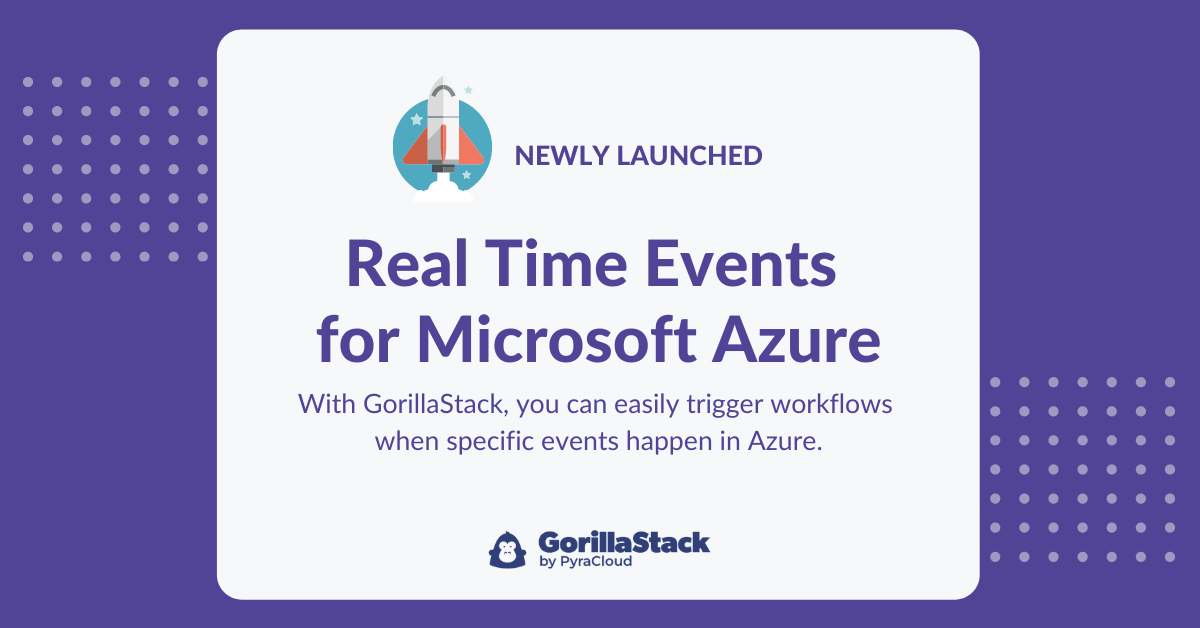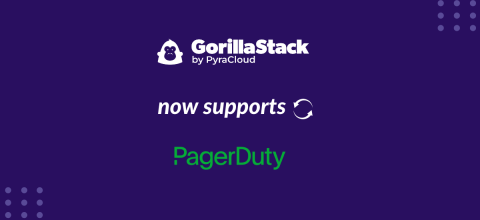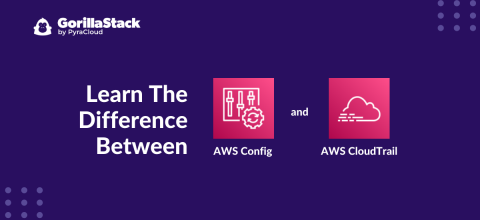
AWS Savings Plans vs Reserved Instances
13 Jul 2021
Azure Real Time Events is Live
22 Sep 2021
If you’re operating in the world of Azure & DevOps, you likely have a number of key responsibilities as part of your role:
- Acceleration of application delivery
- Increasing reliability of application delivery
- Ensuring that application delivery is as secure as it can possibly be
Undertaking trivial tasks such as nightly shutdown, backup, rightsizing & autoscaling are incredibly important. On the other hand, they can also be thought of as trivial table stakes that can be extremely time consuming. Surely, one could spend on more pressing responsibilities.
That’s why a number of Azure DevOps engineers turn to building and maintaining Azure Automation runbooks.
However, these can be unnecessarily convoluted. In addition, it requires the end user to write and support custom scripts in order to deliver dependable Azure automation.
That’s just one reason for leveraging GorillaStack’s Rules Engine – a fully hosted and maintained infrastructure automation tool. It empowers DevOps developers to manage their infrastructure through a product. They can set it up easily and utilized it by the application teams that they support.
In this guide, we will demonstrate a proactive approach to improve your DevOps processes using event-driven cloud automation. You will learn:
- What is Cloud Automation?
- Proactive Approach: Event-driven Cloud Automation
- Benefits and Use Cases of Event-driven Cloud Automation
What is Cloud Automation?
Cloud automation is the use of technologies to accomplish a goal by orchestrating a list of tasks without having to take manual steps. Eg. provisioning your virtual machines without clicking through the Azure Portal.
Typically, the DevOps team implements this using “Infrastructure as Code” (IaC) where they use a special language (like Azure Resource Manager or Terraform). It describes the configuration of their cloud resources in a template. They then use a version control system (VCS) to maintain an auditable history of changes. After which, they use Continuous Integration and Delivery (CI/CD) to test and deploy these templates to Azure.
A Proactive Approach: Event-driven Cloud Automation
Gorillastack is excited to support event-driven cloud automation for Azure.
As a superior alternative to runbooks, users can set up predefined rules that lead to outcomes triggered by events inside their Azure cloud as well as events triggered by webhooks, API and other 3rd party systems.
Users can customize rules or choose from pre-canned options. They can also manage GorillaStack via an intuitive UI, API, Terraform or even by chat solutions such as Slack and Microsoft Teams.
It’s simple to imagine and set up where each rule consists of 3 parts:
- A context – which subscription(s) in Azure would you like the rule to run on.
- A trigger – an event that causes the rule to run.
- An action – the outcome of the rule. For example, the deallocation of a VM or the running of an Azure Function.
Put Simply: Context + Trigger + Action = Predictable Outcome
Benefits and Use Cases of Event-driven Cloud Automation
Simplify DevOps processes for faster, more consistent, and more reliable deployment of Azure resources
Using Azure automation and runbooks can require constant maintenance as the Azure modules themselves are frequently upgraded. This can be tedious and the manual work can be fraught with issues such as:
- Code inconsistency
- Human error
- Security oversight
- Centralised point of failure
GorillaStack solves for the above as a fully productized Rules Engine, resulting in consistent and secure delivery of automated predictable tasks such as power cycling and auto scaling.
Moreover, organizations can use SAML to onboard multiple stakeholders. It gives them peace of mind that the automation is being handled by a purpose built SaaS solution. Further, you can control GorillaStack via an intuitive UI, an API, Terraform, or via a chat application such as Slack or Teams.
Identify Security Risks In Real Time
Too often, organizations discover vulnerabilities from a periodic compliance scan or worse still, once an incident has taken place and exposed security flaws.
DevOps teams shouldn’t be waiting weeks, days or even hours to find that parts of their infrastructure have been compromised or exposed to the public. They wouldn’t want to wait until the bill at the end of the month to discover that an engineer deployed a Virtual Machine(VM) that’s 5 times larger and more costly than intended.
As an alternative, GorillaStack Real Time Events will notify the correct party immediately if a company’s infrastructure deployment falls out of compliance.
Take Control Of Cloud Costs
By using event-driven cloud automation, DevOps teams can better manage their Azure costs. Here are examples of how you can optimize your Azure spend:
- automatically turning on and off virtual machines when not in use
- scheduling the removal of unused or underutilized cloud resources
- cycling container groups, scaling AKS and more.
Also, it promotes ownership of optimizing costs across the organization and significantly reduces cloud wastage.
Get Started with GorillaStack Real Time Events for Azure
Are you ready to eliminate the routine pain points of managing your servers and take back control of your Azure infrastructure? Take a test drive or book a live demo with our team today.


